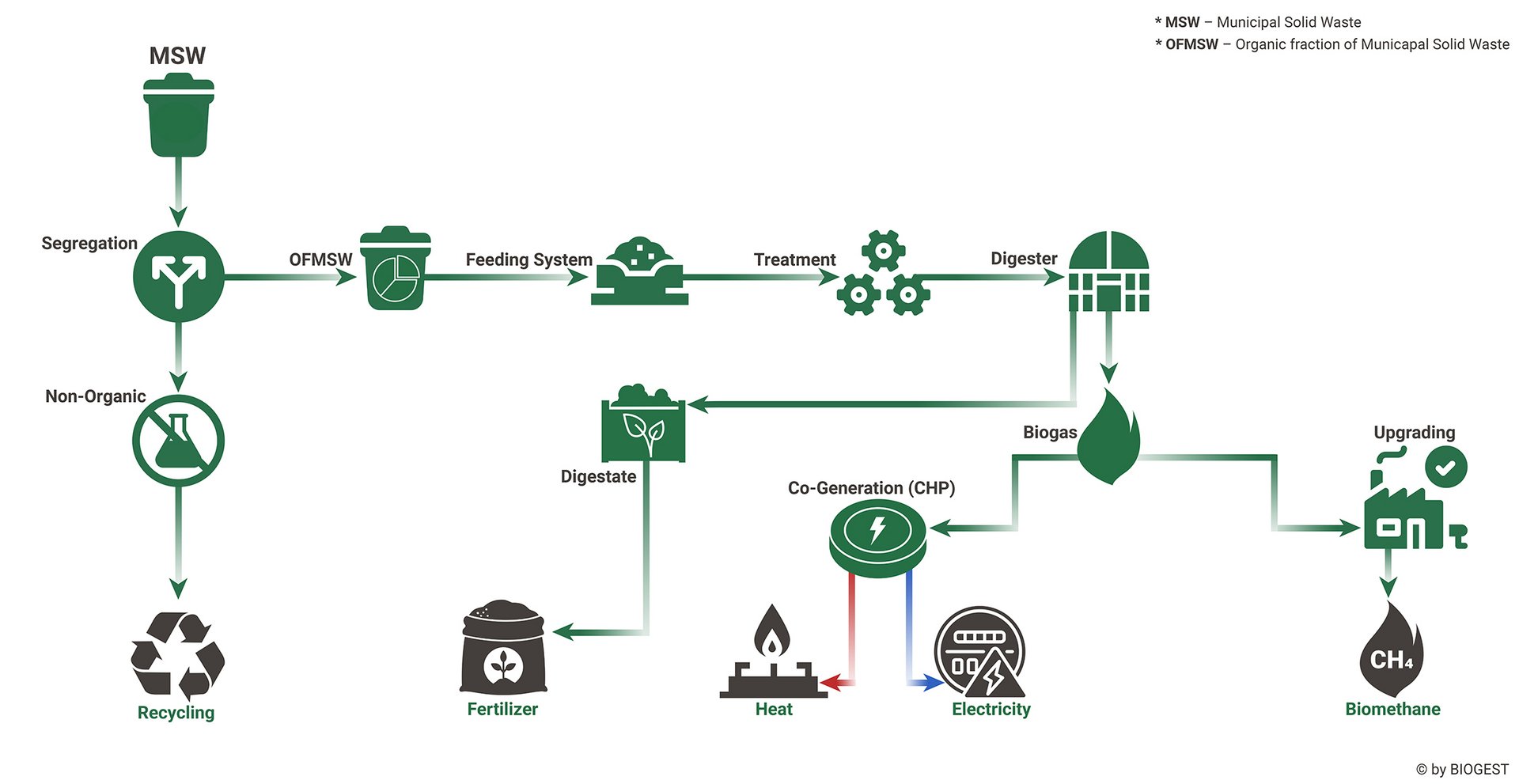Research & Development
Municipal Solid Waste
Transformation of MSW into biogas and fertilizer
Municipal solid waste plant – new opportunities for biogas.
Municipal solid waste (MSW) generation is expected to increase to about 2.2 billion tons globally with the associated management cost of USD 375.5 billion by 2025 (Hoornweg and Bhada-Tata, 2012). MSW typically consists of food waste, paper, glass, metals, plastics, textiles, yard trimmings, etc.; however, there are variations observed in the characteristics of MSW across the world. The management of municipal solid waste presents a challenge for every country and especially for developing countries as the generation of waste is increasing at a rapid and alarming rate. Awareness towards the sustainability and technological advances for municipal solid waste management is needed in order to reduce the generation of unnecessary waste.
In countries like Thailand, organic fraction such as food waste contributes to more than half of the total MSW (Thi et al., 2015). This organic fraction of municipal solid waste (OFMSW) may harm the environment when subjected to uncontrolled decomposition, pollute soil and water, and aggravate climate change by increasing greenhouse gas (GHG) emissions (Sisto et al., 2017). This fraction is going to be recycled in many more countries now, in order to prepare valuable organic matter for biogas production through anaerobic digestion. After digestion, it can be used as fertilizer or amendment to improve the soil structure. Anaerobic digestion has emerged as the preferred treatment for OFMSW.
